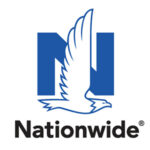Building interest in a small business is harder than it looks, especially in the increasingly competitive marketplace. Keeping this in mind, small firm owners need to do what they can to set their enterprise apart from the rest, such as using effective marketing tactics.
In many instances, small businesses are offering free trials of services or allowing others to sample their products at no charge, and they are seeing varying results, reported The Wall Street Journal. The type of business often indicates whether “freemium” strategies will work. When businesses are offering their service free of charge or at a cost, they still need to write up a contract for each user and protect that contract with certain business insurance policies.
“Freemium is really a construct of the digital age because there’s almost no marginal cost to digital goods,” Chris Anderson, author of “Free: The Future of a Radical Price,” and editor in chief of Wired magazine, told the newspaper.
When a freemium offer has worked
Cloud storage is becoming one of the most popular tools in the marketplace today with many businesses of all sizes needing an affordable place to keep all of their online files. Dropbox is one success story. The online storage solution was able to grow its base by offering a free trial for certain storage amounts. The company’s network now tops more than 50 million users.
Sujay Jaswa, head of business development for Dropbox, told the paper the free version engaged users, which allowed them to generate leads for paid customers.
When moving away from freemium launched success
Chargify, a provider of billing-management software to small businesses, experimented with freemium offers when the firm launched in 2009, but wasn’t able to generate enough revenue and was on the way to bankruptcy, so it ditched the strategy.
Instead, the company began selling its starter plan at a price point of $65, and now it has nearly 1,000 customers, demonstrating how many people used the free offering.
“The decision to move away from freemium was the best business decision we ever made,” Lance Walley, co-founder and chief executive officer for the company, told the paper.












